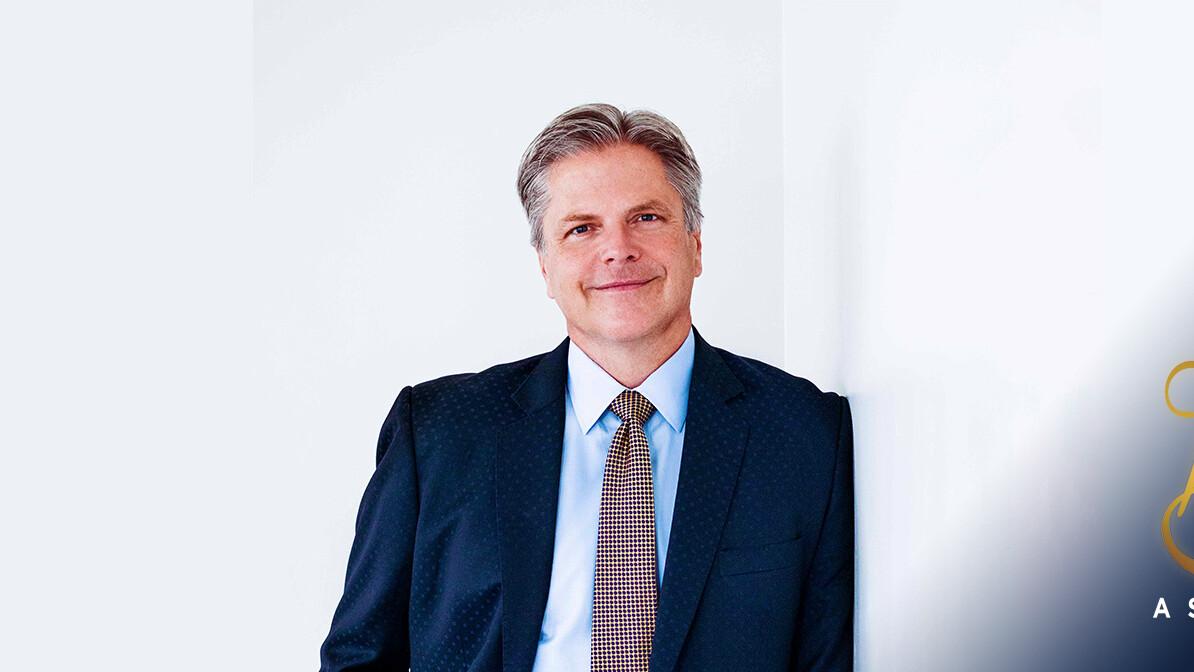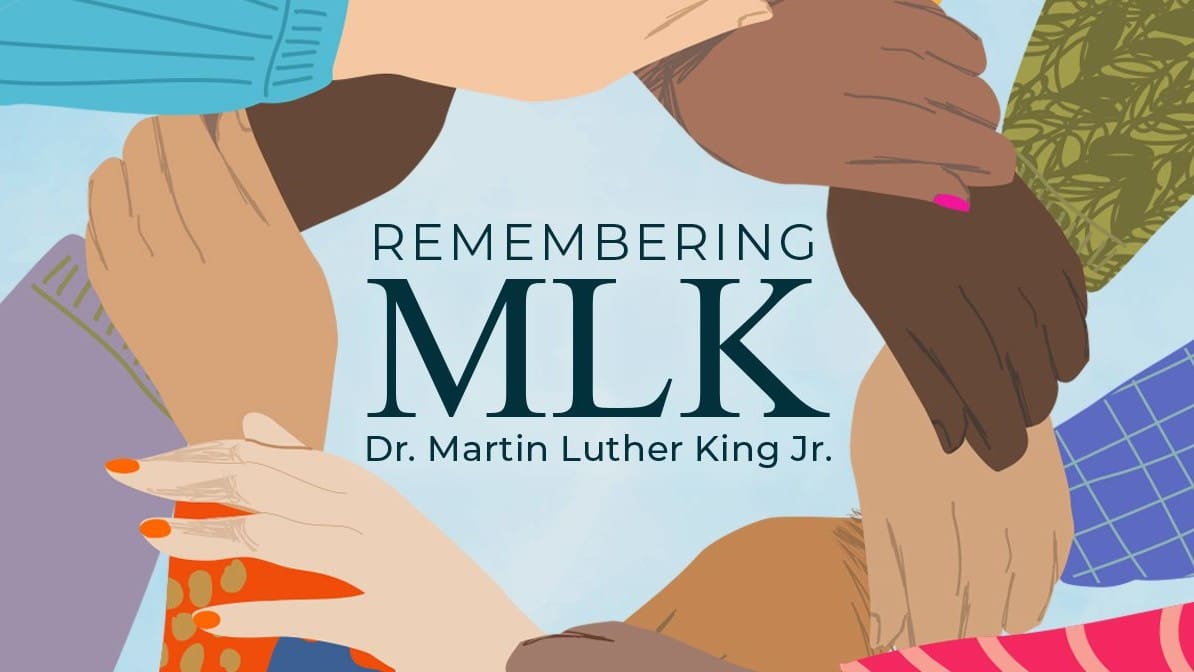
Meet the ‘King of Christmas Fiction’ Part 1
In the first of this two-part interview, best-selling author Richard Paul Evans sits down with Rhonda Robinson to talk about his newest Christmas release The Noel Letters, and reveals its scriptural message.
Rhonda Robinson: The New York Times has called you the “king of Christmas fiction.” The Library Journal has called you “the standard-bearer of Christmas fiction.” So what is it about Christmas that has you so intrigued, or that you love that genre so much?
Richard Paul Evans: Well, they say, to dance with who brought you to the dance, and that’s how I started my first book, with a little book called The Christmas Box. I wasn’t trying to launch a writing career. I was writing a book for my daughters. And I wanted to write a book just to write a book. It was on my bucket list. And so I wrote this book, I had no idea it would spread. It started with 23 copies and is currently at about 8 million copies in print, just spread throughout the world.
So after, I wrote it, and the book is the number one book in the world, actually, the reporter for The New York Times said, Well, what are you doing next? And I had honestly not even thought about a second book, so it caught me off guard—I don’t know.
I decided I would stick with the characters because people liked it so much. So I wrote a book called Timepiece. It was made into a movie with James Earl Jones and Ellen Burstyn. And then I wrote The Letter. And that point, I thought, okay, I’m being typecast here, kind of like Christopher Reeves in Superman. I want to be able to write other books and other genres. So I moved out of it.
I wrote a book and it was successful. And so I wrote that way for a while, but my sales were decreasing every year, which is pretty normal for authors and especially when you start at the top.
And then I thought, well, I finally barely hit the list with a book I wrote, called The Sunflower. And I thought, well, maybe this is my last hurrah. I think it’d be nice to go out with another Christmas story. So I wrote a book called Finding Noel. Well, it absolutely exploded, they went back for an extra hundred thousand copies the first week. It just exploded. Entertainment Weekly and People Magazine praised it. Gave it like, I think, an A-minus on their list, which is pretty high for them. And it just, it kind of relaunched my career after 20 years, it just took over again.
I thought, well, I guess there’s a lot to the saying, “You dance with who brought you to the dance.” So, I decided I would write a Christmas story every year. And it’s done really well. Now, I’ve been picked up by producers so I have eight movies. There are, actually the eighth is being produced right now as my first feature film. It’s with Netflix starring Justin Hartley of This Is Us and Charles Shire is the director— a big film director. And I have three other things that producers are working on right now. So all of a sudden, my movie life has just taken off.
RR: One of the premises of this year’s Christmas book the Noel Letters is based on the Bible, that the truth will set you free. So I’m sure you believe that. But did you have an experience or something in your personal life, or know someone that made that become real to you, to write about it?
Richard: I have. I believe. I believe that verse, you know, the truth will set you free. I’ve had that experience on many occasions. Just growing up, looking back over my life, and, you know, things that have impacted me to realize things weren’t the way I thought they were. I thought this would be a really interesting thing to explore as a writer. What happens when what you believe isn’t true?
And so yeah, I mean, in a personal sense, I’ve had this happen in big ways as well. When all of a sudden your eyes are opened up. And what I found is the things that I feared the most, have actually brought me the most joy.
I was listening to a sermon the other day, and it said, it’s not how tight you hold to a belief, or faith, and belief. It’s the power of the actual object.
If you have faith in the wrong object, it’s just not going to help you. And I started out my book that way. I liken it to a ladder. It’s like if you’re on a shaky ladder and the ladder’s starting to fall, the first thing we do, our reflex, is to grab tighter onto the ladder.
That’s going to do us no good at all.
The ladder’s falling. Right?
Like go and look for something else to grab onto. So the concept that looking for truth and being open to the truth is really at the base of this book and what it’s about.
RR: I love that analogy. The Booklist review wrote of the Noel Letters, “A lovely read that beautifully contrasts the mystery of memory, and the redemptive power of new beginnings.” When I first read that I thought, that’s a really powerful word picture. Is it accurate?
Richard: We all have false beliefs. Everyone on this planet has false beliefs or things we hold to that just simply aren’t true. That’s why reading is important. And it’s why travel is important. Before I became an international best selling author and started traveling around the world, there are things I believed that just weren’t true about other people. And I actually came back with more optimism and hope in humanity.
So what I find is, that if we start with the idea that the mental map, that we created as a child is flawed Those who cling to it, and just try to prove it, it’s as if they are taking a map from Boise, Idaho and trying to use it in downtown Chicago—and you can’t. As you grow up, you can’t say, well, that map worked great and I know it should work in Chicago. It’s like—no. That doesn’t match the landscape.
As we grow up, if we accept the fact that our maps are incorrect, and that there are things that we believe that are not true, it takes a tremendous amount of faith to do that. But it will open us up to tremendous joy and productivity. It’s the only way. People who don’t do that, just find themselves frustrated that their life doesn’t work right. They keep driving down dead-end roads, and it says, according to my map, this isn’t a dead end. And they just, you just can’t keep doing the same thing over and over thinking the results gonna change.
So that is the power of truth and the basis of how we need to live.
RR: All of your books have made the New York Times bestsellers list. That is quite a lifetime achievement. And yet, this is your wife’s favorite. What makes this her favorite?
No idea. When I wrote this book, it was painful. It was more difficult. Giving birth to this book was like a bad labor. Excuse me for as a man using that analogy.
But, it did not come out right. And the complications were many. And finally, I locked myself away into a hotel room. I had just days to finish this book and it’s not close to being done. And so I’m writing around the clock —literally. I’d write till two in the morning, I’d sleep a couple of hours, get up, write, go to sleep, and my assistant was bringing me food so I wouldn’t have to leave. And I said to her, I can’t believe I’ve been here for a week. And she said, “You’ve been here 10 days.”
I just lost track of time, and so no, I kept pushing on it. And finally, I thought I’m going to make it. I’m going to make it. I’m gonna make it by noon the day before it was due. So I said, you know, Thursday at noon, it’s due Friday. I’ll have it Thursday at noon, to turn it in. And of course, it’s noon and is not. It’s not ready. And at 3:30 in the morning, I push the send button to send it in to my publisher. And I remember thinking, it’s done! IT’S DONE!
I sat on the bed, and I thought, 3:30 in the morning, I’m all alone, I should probably celebrate. And that feeling lasted about a minute because, all of a sudden, the room started to spin. I thought I’m going to pass out. I curled up in the fetal position. I can’t tell if I’m going to throw up or pass out. One of them. I was really sick. Then the next morning, I called my assistant and said I can’t really move, you need to come help me get out of the hotel.
We were leaving on vacation, my wife and I, and she brought me an ice pack and I put a towel over my head and ice pack and she just drove for the next four hours.
I thought, this book broke me.
So much so, I thought, I don’t know if it’s any good at all, it probably is awful. And they say you can’t see the forest for the trees. I couldn’t see the tree. My head was just stuck so far into the tree. Like, I don’t know if it’s any good. I just know I gave it everything.
And so when she read it, when she came back, she goes, “This is amazing. This is my favorite of your books.” I’m like, Why? And I go, “No, no, it’s not.”
But it really is. And then I start getting these really great national reviews and, even just before coming on interview. My niece called me crying. She said, I just finished your book. And it is amazing. And it touched so many things. Everyone in the world needs to read this book now. And she’s never done that with any of my books before.
So it’s impacting people in a really powerful way. It’s doing very well in sales. It is already a New York Times bestseller. But what hits me is that it’s making people question their false beliefs.
And that’s what I hoped would happen. That people would look for truth because the truth will set us free.
…
Order your copy of The Noel Letters (The Noel Collection)
Trending Now
Sign up today for your Inspiration Today Daily Newsletter
Supercharge your faith and ignite your spirit. Find hope in God’s word. Receive your Inspiration Today newsletter now!
Rhonda Robinson
Rhonda Robinson is a speaker and the author of Freefall: Holding Onto Faith When the Unthinkable Strikes, offering women spiritual wisdom to transform the darkness into a season of profound change and emerge with vision and purpose. Learn more at rhondarobinson.tv
Related Articles
January 19, 2026
Martin Luther King Jr. Day: A Biblical Call to Live God’s Grace, Love, and Mercy
On August 28, 1963, Dr. Martin Luther King, Jr. stood on the steps of the Lincoln Memorial and…
January 10, 2026
Beginning the New Year with a New Perspective
Happy New Year, friends! It’s the beginning of a new year, and more often than not, that prompts…
January 7, 2026
Renewing Your Mind for the New Year
What Are You Asking God to Do in Your Life This Year? As you step into this new year, what are you…
January 3, 2026
Four Steps to Setting Goals in the New Year
As you step into a brand-new year, you may feel the desire to reset, refocus, or simply get back to…
Next Steps To Strengthen Your Walk
Inspiration Today Newsletter
Supercharge your faith and ignite your spirit. Find hope in God’s word. Receive your Inspiration Today newsletter now!
Christian Articles
Find articles to strengthen your walk and grow your faith. We have a wide range of topics and authors for you.
Submit A Prayer Request
We are here for you. Simply click on the button below to reach us by form, email or phone. Together we will lift our hearts and voices with you in prayer.






